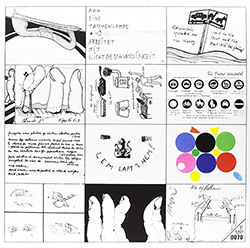
First ever CD reissue of the only band under bassist Peter Kowald's own name, remastered; originally released by FMP in 1972, this is exemplary European Free Jazz from one of the orignal innovators in a quartet with Peter Kowald on tuba, bass, & alphorn, Gunter Christmann and Paul Rutherford on trombones, Peter van der Locht on alto saxophone, and Paul Lovens on drums.
In Stock
Quantity in Basket: None
Log In to use our Wish List
Shipping Weight: 4.00 units
EU & UK Customers:
Discogs.com can handle your VAT payments
So please order through Discogs
Sample The Album:
Gunter Christmann-trombone
Peter Kowald-tuba, bass, alphorn
Peter van der Locht-alto saxophone
Paul Lovens-drums
Paul Rutherford-trombone
Click an artist name above to see in-stock items for that artist.
Label: Corbett vs. Dempsey
Catalog ID: CvsDCD070
Squidco Product Code: 29636
Format: CD
Condition: New
Released: 2020
Country: USA
Packaging: Cardboard Gatefold
Recorded at Akademie der Kunste, in Berlin, Germany, on January 19th, 1972, by Eberhard Sengpiel. First released on the German FMP label in 1973 as FMP 0070.
"The only album featuring a band under Peter Kowald's name, Peter Kowald Quintet comes from a vital moment in the German bassist's career. A close colleague of Peter Brotzmann's in their formative years, including the saxophonist's debut For Adolphe Sax and the classic Machine Gun, Kowald had by 1972 broadened his circle of collaborators, eventually working with a who's who of global creative music.
Recorded live in Berlin, released on FMP, this date documents a tensile ensemble, with an unusual lineup featuring two trombones - Londoner Paul Rutherford and the German maestro Gunter Christmann - together with the less-well-known Dutch alto saxophonist (and sculptor) Peter van de Locht and brilliant German percussionist Paul Lovens. Kowald adds to the low brass when he turns from double-bass to tuba and alphorn. Spacious and fiery, these four tracks are exemplary European free music led by one of the music's foremost originals - Kowald's rough and ready bass, which was anchoring (and de facto leading) the Globe Unity Orchestra of that period, is echoed in the take-no-prisoners music of the fivesome.
Mastered from original tapes, this first-ever CD release features a facsimile version of the original cover, which featured artwork by ten non-musician friends and unique hand-additions."-Corbett Vs. Dempsey
"The informal freemasonry among European practitioners of the New Music grows daily stronger. Although the Continentals are rarely allowed to play here (thanks to antiquated regulations), British musicians now regularly cross the Channel to appear side-by-side with the best players Europe has to offer.
This album represents just such a collaboration, with trombonist Paul Rutherford taking his place in the band of German multi-instrumentalist, Peter Kowald, which itself contains one Belgian (van de Locht) and one Dutchman (Lovens).
It was recorded at a concert in Berlin, during a Free Music Festival last January, and is a thoroughly excellent example of the kind of music to be heard at such events all over Europe.
The work of the trombone team is what catches the ear first; Rutherford produces his vast array of technical effects, and manages to make music out of them all the time. Near the end of "Pavement Bolognaise", for instance, he plays a long unaccompanied passage made up of long, low growls, ending with a delicious smear, which is quite riveting.Christmann is a rather more straightforward player (though not much) and makes a fine complement. When he, Rutherford, and Kowald (on Alphorn, I think) play together on the short "Guete Luuni", the effect is like a brass band lament from outer space.The leader himself has some impressive moments on bass, particularly on "Platte Talloere", where he plays a long solo made up of strange scratching sounds (caused by pressing the bow down hard on the strings) and is beautifully accompanied by Lovens - who seems to have calmed down a lot since I first heard him a couple of years ago.Van de Locht sounds like a very promising young musician, giving his best work in the ensemble improvisations, when he provides an upper line with a poignant, bitter-sweet flavor.
A quintet, then, which is integrated as well musically as it is nationally; and a LP of informal, enjoyable music, which is highly recommended."-Richard Williams, Melody Maker, June 17, 1972
Artist Biographies
• Show Bio for Gunter Christmann "Born 1942; trombone, cello, film. Günter Christmann has been working since 1968 as a free-lance musician specialising in improvised musics - particularly free improvisation - and their links with other art forms. In the late 1960s and throughout the 1970s, he was primarily known for his trombone (and less frequent double bass) playing in a variety of groupings: Rüdiger Carl group (1969-1972); Peter Kowald Quintett (1972-1974); a duo with Detlef Schönenberg (1972-1982) which itself included many collaborations - for example with the electronics player Harald Bojé - as a member of the Globe Unity Orchestra from 1973 onwards; and in duo with Tristan Honsinger (1978-1981). In the mid-1970s Christmann also began exploring the possibilities of solo playing, sometimes including electro-acoustic manipulations and montage techniques. Since 1980 Günter Christmann has played regularly with Paul Lovens - for example, in the excellent (and recorded) trio with Maarten Altena, in duo, and in trio with Mats Gustafsson - in duo with bass player Torsten Müller (generally under the name of their recording, Carte blanche, as a member of King Übü Orchestrü (1987-1994), and in duo with Alexander Frangenheim. He also started to feature cello in his playing, not as a second instrument to trombone but as an equal. From 1979 Günter Christmann has been interested in working with different combinations of improvisers from an international pool, often combining musicians with dancers, actors and acrobats. These groupings have gone under the generic name of VARIO (now up to VARIO 35), with many combinations having been documented on LP and CD (see list below). VARIO concerts have included: Langenhagen Jazz 1979/1981/1983; Moers 1981/1983; Actual London 1981; Pisa 1982; Osnabrück 1982; Utrecht 1982; a tour of South and Central America in 1983 (Mexico, Columbia, Dominican Republic, Peru, Chile, Argentina, Uruguay, Brazil); Zürich 1984; Hannover 1985; Bremen 1985; Paris 1992; Hannover 1993; Den Haag 1994; Stuttgart 1995; Nickelsdorff 1998; Hannover 1998. Artists who have participated in VARIO formations include: Maarten Altena; Regina Baumgart (dancer); Steve Beresford; Udo Blickensdorf (acrobat); Lindsay Cooper; Axel Dörner; Katie Duck; Alexander Frangenheim; Wolfgang Fuchs; Mats Gustafsson; Andy Geer (pantomime); Gerd Gläsmer (drums); Michael Griener (percussion); Ulrich Gumpert; Bernd Halleck (actor); Shelley Hirsch; Tristan Honsinger; Guus Janssen; Sven-Åke Johannson; Theo Joling (clown); Peter Kowald; Gyde Knebusch (harp); Thomas Lehn; Paul Lovens; Rudi Mahall (bass clarinet); Radu Malfatti; Phil Minton; Torsten Müller; Christian Munthe; Maggie Nicols; Evan Parker; Melvyn Poore; Jon Rose; John Russell; Jo Sachse; Wolfgang Schliemdun (percussion); Detlef Schönenberg; Irène Schweizer; Günter Sommer; LaDonna Smith; Mariano Suarez (trumpet); Martin Theurer; Roger Turner; Peter van Bergen; Davey Williams; Stephan Wittwer. Even outside VARIO, Christmann has longstanding interests in bringing together similar-minded artists from a variety of disciplines. This started in 1974 through a collaboration with dancer/choreographer Pina Bausch and was later continued with Elisabeth Clark and Regina Baumgart. These early experiments led to his interest in film, particularly the relationship between improvising musicians and experimental film-makers; his current work in this area goes under the banner Deja-vu, being a sequence of music-theatre scenes in which live music, acting, films and sound collage are brought together. At its centre is the playing musician who works both with and against the film and whose relationship with the situation on stage in constantly changing. Advantages are taken of the ability of film to snatch up, to double and enlarge, and to fragment what would otherwise be a traditional relationship between action, scenery and person. This results in an interchange and transformation of themes, properties and associations, and movement between illusion and reality. The films are by Günter Christmann, music is provided by Christmann and Michael Griener, and technical assistance is provided by Elke Schipper." ^ Hide Bio for Gunter Christmann • Show Bio for Peter Kowald "Born 1944 in Germany, died 21 September 2002 New York City; double bass, voice, tuba. Peter Brötzmann (Corbett, 1994) recounted that 'there was this young guy trying to play the bass, who was Mr Kowald, at that time seventeen years old. Peter lived with his parents. I had my little studio, so he was always hanging out at my place. But he had to be at home at 10.00, he was drinking milk. But we changed that, very soon. His parents were always very angry with me, because he never showed up at home anymore, he dropped studies of ancient languages, Greek and all that.' By this time (1962) Peter Kowald had been playing bass for two years and, with different drummers the two Peters were playing Mingus, Ornette, and Miles Davis things as well as listening to Coltrane, Stockhausen, Cage et al. Kowald was part of the European tour undertaken by the Carla Bley/Michael Mantler band in 1966 (also featuring Brötzmann) and then came work with other German musicians, membership of the Globe Unity Orchestra and the first recordings: Globe Unity, For Adolphe Sax and Summer 1967, recorded during a brief vacation in London. In particular, Evan Parker credits this visit to London for his invitation to play in the Pierre Favre/Irene Schweizer quartet and his subsequent longstanding involvement with German (and other European) musicians. Kowald's work with Brötzmann continued - on and off - on record at least, to the time of Kowald's death and included the Cooperative Trio with Andrew Cyrille, a duo on the Duos project and a recent mix of free jazz, hip-hop and rap. Peter Kowald was a member of Globe Unity Orchestra for 12 years (1966 to 1978) and for much of this time played less of a side-man role and more of an equal partner - for example, conducting the band - with the person to whom the group has become most associated, Alex von Schlippenbach. His influence is particularly noticeable on Jahrmarkt/Local fair where the two sides of composition are by Kowald (as is the second side of Live in Wuppertal and he is also credited, along with Paul Lovens as 'producing' the record, presumably sorting out the sprawling theatricality and poor sound into two 'meaningful' fragments. In his notes to 20th anniversary, Schlippenbach emphasises the importance of Kowald in creating a programme that became a lot more 'colourful'; while further pointing out that he and Kowald gradually drifted further apart 'until one fine evening after lengthy discussions which resulted in a fight in a pub in Wuppertal, this chapter also closed'. However, before this ending, from 1973 to 1978, Kowald also worked with the Schlippenbach trio (Schlippenbach/ Parker/Paul Lovens), turning it for much of this time into a regular quartet. Throughout his career, Peter Kowald worked with a wide variety of improvising musicians worldwide and in many considered and unusual situations. He recorded bass duets with Barry Guy, Barre Phillips, Peter Jacquemyn, Maarten Altena, Damon Smith and William Parker, released two solo bass recordings, and had regular groups with Leo Smith and Günter Sommer; with Joëlle Léandre and dancer Anne Martin (Trio Tartini); with dancers Cheryl Banks and Arnette de Mille and cellist Muneer Abdul Fataah (Music and Movement Improvisation); a trio with pianist Curtis Clark; a trio with Canadian alto saxophonist Yves Charuest and Louis Moholo; and Principle Life with Jeanne Lee, Klaus Hovman, and Marilyn Mazur. During the period 1980 to 1985 he was a member of the London Jazz Composers' Orchestra. He has spent periods in the US and in Japan and recorded three duo LPs (two CDs) with US, European and Japanese musicians. He also lived in Greece and similarly played and recorded with the Greek musicians Floros Floridis and Ilias Papadopoulos. By contrast, the 12 months May 1994 to May 1995 was designated Kowald's 'Year at home' project which comprised a mixture of solo works - out of which, to some extent, the last solo CD grew (Was da ist) - and group performances. In addition, Peter Kowald collaborated extensively with poets and artists and with the dancers Gerlinde Lambeck, Anne Martin, Tadashi Endo, Patsy Parker, Maria Mitchell, Sally Silvers, Cherly Banks, Arnette de Mille, Sayonara Pereira, and Kazuo Ohno. Specific works included Die klage der kaiserin (1989) with Pina Bausch, Short pieces (since 1989) with Jean Sasportes, The spirit of adventure (1990) with Anastasia Lyra, Wasser in der hand (1990/91) with Christine Brunel, and Futan no sentaku/The burden of choice (1990/91) with Min Tanaka and Butch Morris." ^ Hide Bio for Peter Kowald • Show Bio for Peter van der Locht "Peter H. van de Locht was born in the German city Millingen (since 1975 part of the town Rees) in the district of Kleve. He received private lessons from 1960 Waldemar Kuhn and attended from 1964 to 1968 Werkkunstschule in Krefeld and then until 1969 the Werkkunstschule in Wuppertal and studied sculpture at among others Hein Wimmer and Guido Jendritzko (a pupil of Hans Hartung). In 1969, he left, and his brother Klaus (1942-2003) who was also an artist, to the Netherlands. He studied from 1969 to 1970 at the Institute of Sonology of Utrecht University. In 1970 Van de Locht participated in the Venice Biennale. In 1977, Peter and Klaus van de Locht had a joint exhibition in Wesel : Zwei Niederrheinische Künstler in the Niederlanden. In 1980 he stayed in Carrara , Pietrasanta, Florence and Rome . He took part in the 1981/1982 international stone sculpture symposium Nordhorn ( Kunstwegen ) with, among others, the stone sculptors Karl Prantl , Nils-Udo and Ulrich Rückriem. From 1977 to 1989 he was a lecturer at the School of the Arts Arnhem in Arnhem , and from 1989 to 2005 at the Utrecht School of the Arts in Utrecht . In 2008 Van de Locht was appointed professor of sculpture at the University of Shanghai . The artist lives and works in Shanghai. The Locht works mainly with natural stone, including marble and granite. He is active as avant-garde and jazz musician and composer. ^ Hide Bio for Peter van der Locht • Show Bio for Paul Lovens "Born in Aachen, Germany, 6 June 1949; Drums, percussion, musical saw, etc. Paul Lovens played the drums as a child. Self-taught, from the age of 14 he played in groups of various jazz styles and popular musics and from 1969 has worked almost exclusively as an improvisor on individually selected instruments. He has worked internationally with most of the leading musicians in free jazz and free improvisation, among whom have included the Globe Unity Orchestra, the Berlin Contemporary Jazz Orchestra, the Schlippenbach trio, Quintet Moderne, Company, and a duo with Paul Lytton. He has undertaken concert tours in more than 40 countries, is a founder member of a musician's cooperative and has produced recordings for his own label, Po Torch Records since 1976. He has worked with painter Herbert Bardenheuer. Despite very rare solo performances, and although giving occasional concerts with ad-hoc groups and an involvement in projects with film, dance and actors, Paul Lovens' main interest and work is musical improvisation in fixed small groups. In the mid-1990s these small groups numbered around 16, of which a few were part of a special selection, called 'vermögen'. Paul Lovens somehow epitomises the free drummer/percussionist who is not there to lay down the beat and kick everyone else into action but to listen, colour, contribute, guide, and occasionally direct, the overall cooperative sound. In concert one cannot fail to be moved by his intensity and concentration and there is an overiding feeling that even the most random events are somehow planned in time. In this respect, there is a nice irony that on the Nothing to read CD with Mats Gustafsson, Lovens describes his kit as consisting of 'selected and unselected drums and cymbals'. Miking seems to be a problem at times with some recordings giving him undue prominence and others insufficient. Good recordings are Elf bagatellen, Nothing to read, Pakistani pomade, and ,stranger than love." ^ Hide Bio for Paul Lovens • Show Bio for Paul Rutherford "Paul William Rutherford (29 February 1940 - 5 August 2007) was an English free improvising trombonist. Born in Greenwich, South East London, Rutherford initially played saxophone but switched to trombone. During the 1960s, he taught at the Guildhall School of Music and Drama. In 1970, Rutherford, guitarist Derek Bailey and bassist Barry Guy formed the improvising group Iskra 1903, which lasted until 1973. The formation was documented on a double album from Incus, later reissued with much bonus material on the 3-CD set Chapter One (Emanem, 2000). A film soundtrack was separately released as Buzz Soundtrack. Iskra 1903 was one of the earliest free improvising groups to omit a drummer/percussionist, permitting the players to explore a range of textures and dynamics which set it apart from such other contemporary improvising ensembles as SME and AMM. The group's unusual name is the Russian word for "spark"; it was the title of the Iskra revolutionary newspaper edited by Lenin. The "1903" designation means "20th century music for trio"; occasionally Evan Parker played with the group (Iskra 1904) and Rutherford also at one point assembled a 12-piece ensemble called, inevitably, Iskra 1912. The group was later revived with Philipp Wachsmann replacing Bailey, a phase of the group's life that lasted from roughly 1977 to 1995; its earlier work is documented on Chapter Two (Emanem, 2006) and its final recordings were issued on Maya (Iskra 1903) and Emanem (Frankfurt 1991). Rutherford also played with Globe Unity Orchestra, London Jazz Composer's Orchestra, Centipede, the Mike Westbrook Orchestra, and the Orckestra, a merger of avant-rock group Henry Cow, the Mike Westbrook Brass Band and folk singer Frankie Armstrong. He also played a very small number of gigs with Soft Machine. He is perhaps most famous for solo trombone improvisations. His album The Gentle Harm of the Bourgeoisie is a landmark recording in solo trombone and his 1983 Trio album Gheim, recorded at the Bracknell Jazz Festival is another acclaimed work. Rutherford died of cirrhosis of the liver and a ruptured aorta on 5 August 2007, aged 67." ^ Hide Bio for Paul Rutherford
3/31/2025
Have a better biography or biography source? Please Contact Us so that we can update this biography.
3/31/2025
Have a better biography or biography source? Please Contact Us so that we can update this biography.
3/31/2025
Have a better biography or biography source? Please Contact Us so that we can update this biography.
3/31/2025
Have a better biography or biography source? Please Contact Us so that we can update this biography.
3/31/2025
Have a better biography or biography source? Please Contact Us so that we can update this biography.
Track Listing:
1. Platte Talloere (13:08)
2. Wenn Wir Kehlkopfoperier Te Uns Unterhalten (7:09)
3. Pavement Bolognaise (14:01)
4. Guete Luuni (2:38)
Improvised Music
Free Improvisation
European Improvisation, Composition and Experimental Forms
London & UK Improv & Related Scenes
Quintet Recordings
Kowald, Peter
Staff Picks & Recommended Items
Jazz Reissues
Search for other titles on the label:
Corbett vs. Dempsey.


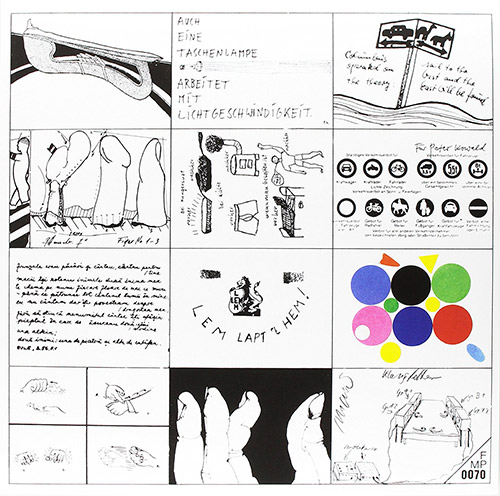

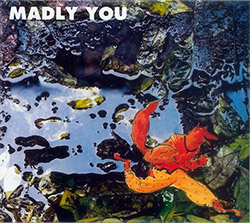



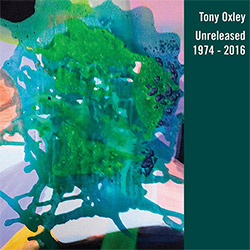
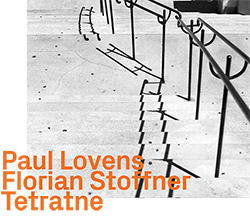
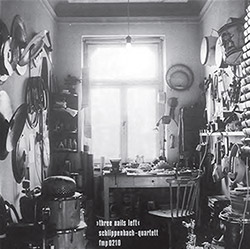
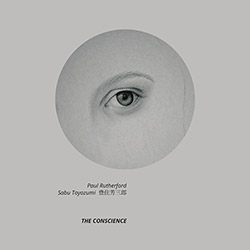
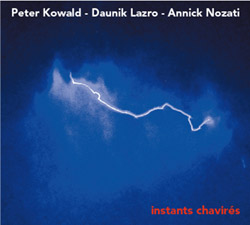
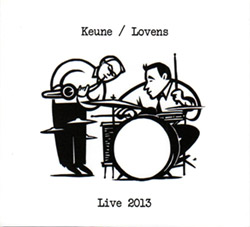
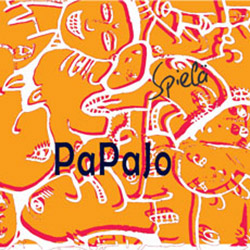
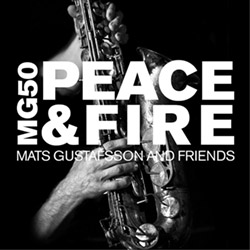
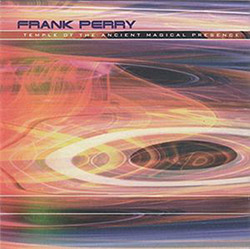
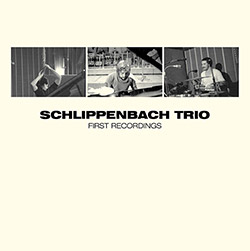

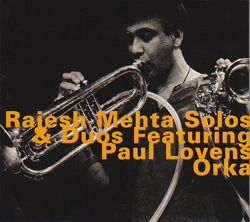
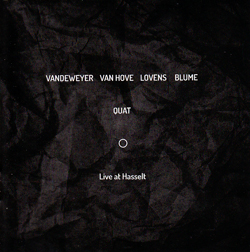
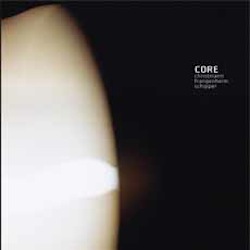
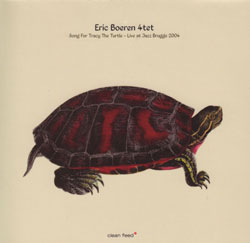
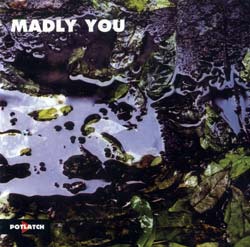
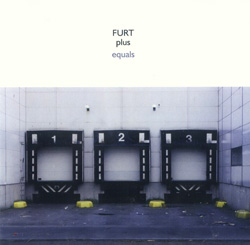
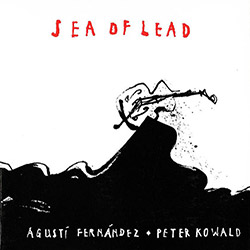
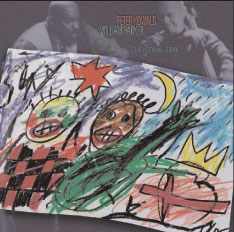
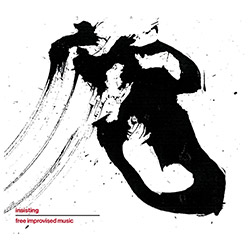

![Rodrigues, Ernesto / Nuno Torres / Guilherme Rodrigues: Whispers In The Moonlight - In Seven Movements [2CDs]](https://www.teuthida.com/productImages/misc4/35765.jpg)



![Cocks, Laura: FATHM [VINYL]](https://www.teuthida.com/productImages/misc4/36055.jpg)










![Ackerley / Prymek / Turner: All Hope With Sleeping Minds [CASSETTE]](https://www.teuthida.com/productImages/misc4/35950.jpg)
![Myers, David Lee : Tin Drop Tear [BOOK w/ DOWNLOAD]](https://www.teuthida.com/productImages/misc4/36030.jpg)



![Schindler, Udo / Sandy Ewen / Damon Smith: Munich Sound Studies Vols. 4, 5 & 6 [3 CDs]](https://www.teuthida.com/productImages/misc4/35966.jpg)






![Turbulence Orchestra & Sub-Units: Smear Out the Difficulties (Double Live) [2 CDs]](https://www.teuthida.com/productImages/misc4/36048.jpg)
![Perelman, Ivo / Tyshawn Sorey: Paralell Aesthetics [2 CDs]](https://www.teuthida.com/productImages/misc4/35871.jpg)


![Sjostrom, Harri: SoundScapes #4 Festival Berlin 2023 [3 CDs]](https://www.teuthida.com/productImages/misc4/35874.jpg)



![Glenn, Jordan: Flustered [CASSETTE]](https://www.teuthida.com/productImages/misc4/35948.jpg)


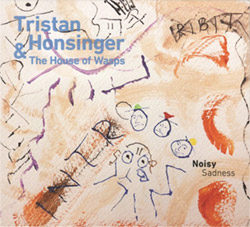
![Lindorff-Ellery, Evan: Church Recordings from Monhegan [CASSETTE]](https://www.teuthida.com/productImages/misc4/35949.jpg)
![Schindler, Udo / Werner Dafeldecker / Gunnar Geisse: Travelling Sound Images - Cognitive Transfers [Trio]](https://www.teuthida.com/productImages/misc4/35767.jpg)

![Egberth, Dennis: The Dennis Egberth Dynasty [VINYL]](https://www.teuthida.com/productImages/misc4/35549.jpg)


![Schindler, Udo / Rieko Okuda / Eric Zwang Eriksson: Disturbed Terrains [2 CDs]](https://www.teuthida.com/productImages/misc4/35330.jpg)






![Olencki, Weston : Pearls Ground Down To Powder [VINYL]](https://www.teuthida.com/productImages/misc4/35956.jpg)
![Myers, David Lee: Oculus [2CDs]](https://www.teuthida.com/productImages/misc4/35857.jpg)


![dustsceawung: dustsceawung [CASSETTE w/ Download]](https://www.teuthida.com/productImages/misc4/35753.jpg)




![Halls of the Machine: Atmospheres For Lovers And Sleepers [CASSETTE w/ DOWNLOAD]](https://www.teuthida.com/productImages/misc4/35806.jpg)



![AHC (Alexander Cooper): Lase [2 CDs]](https://www.teuthida.com/productImages/misc4/35754.jpg)



![Fagaschinski, Kai / Yan Jun : Graveyard Processions [VINYL w/ DOWNLOAD]](https://www.teuthida.com/productImages/misc4/35474.jpg)
![Brant, Cody / Carl Kruger: Smoke Detail [CASSETTE w/ DOWNLOAD]](https://www.teuthida.com/productImages/misc4/35551.jpg)








![Zorn, John / JACK Quartet: The Complete String Quartets [2 CDs]](https://www.teuthida.com/productImages/misc4/35609.jpg)

![Lonsdale, Eden: Dawnings [2 CDs]](https://www.teuthida.com/productImages/misc4/35480.jpg)







![Sanna, Claudio: Compositori Sardi Contemporanei II [2 CDs]](https://www.teuthida.com/productImages/misc4/35317.jpg)







![Zurria, Manuel: Fame di Vento [3 CDs]](https://www.teuthida.com/productImages/misc4/35167.jpg)

![Granberg, Magnus / Nattens Inbrott / Skogen: Holde Traume, Kehret Wieder! [2 CDs]](https://www.teuthida.com/productImages/misc4/35038.jpg)

![Electric Bird Noise / Derek Roddy: 8-10-22 [CD EP]](https://www.teuthida.com/productImages/misc4/35970.jpg)








![Elephant9 : Mythical River [VINYL]](https://www.teuthida.com/productImages/misc4/34624.jpg)



![Elephant9 with Terje Rypdal: Catching Fire [VINYL 2 LPs]](https://www.teuthida.com/productImages/misc4/35355.jpg)
![Deerlady (Obomsawin, Mali / Magdalena Abrego): Greatest Hits [VINYL]](https://www.teuthida.com/productImages/misc4/34876.jpg)







![Surplus 1980: Illusion of Consistency [CD]](https://www.teuthida.com/productImages/misc4/35069.jpg)
![Staiano, Moe: Away Towards the Light [VINYL + DOWNLOAD]](https://www.teuthida.com/productImages/misc4/35037.jpg)



![Caveira (Gomes / Sousa / Abras / Ferrandini): Ficar Vivo [VINYL]](https://www.teuthida.com/productImages/misc4/34643.jpg)
![Coley, Byron: Dating Tips for Touring Bands [VINYL]](https://www.teuthida.com/productImages/misc4/17906.jpg)

![Lost Kisses: My Life is Sad & Funny [DVD]](https://www.teuthida.com/productImages/misc4/lostKissesDVD.jpg)